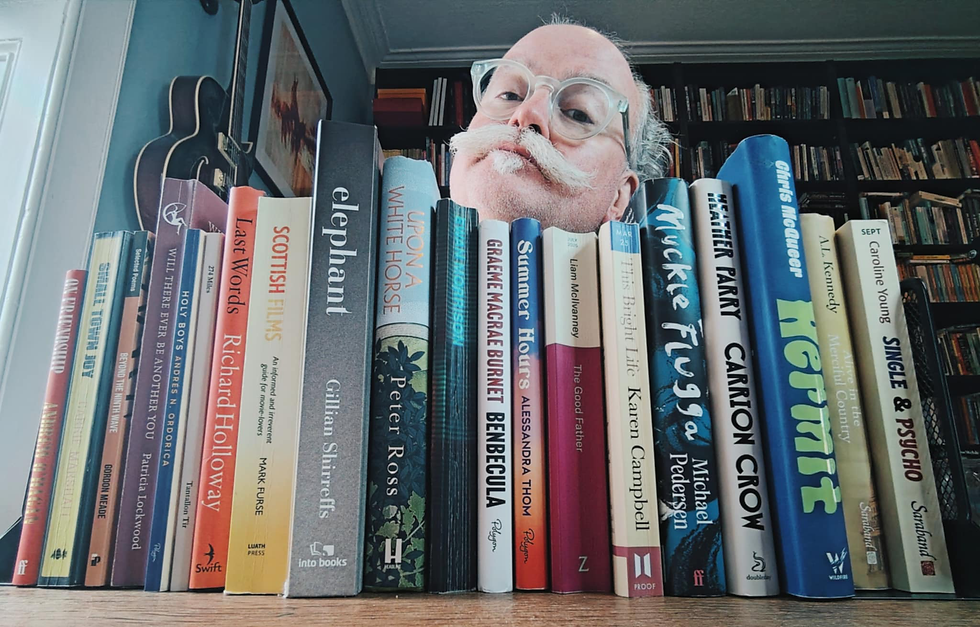Local Heroes: A Review Of Jemma Neville’s Constitution Street…
- Alistair Braidwood

- Aug 26, 2019
- 3 min read
Updated: May 7, 2021

A quote which came to shape the nation’s politics was Margaret Thatcher’s claim in 1987 that, “..there’s no such thing as society”. Even as a teenager who was just beginning to get interested in politics this rang as a deeply suspicious and bogus claim, one made to justify the policies not only of Conservative governments, but also, sadly, future Labour ones as well, placing the wants and desires of individuals and big business ahead of any idea of communal benefits and shared social responsibility. That may be politicly simplistic and naive (and if it’s deep political insight you’re looking for, I suggest you look elsewhere), but that doesn’t make it untrue.
Jemma Neville‘s Constitution Street (404 Ink) rightly turns that claim on its head. Its subtitle is “finding hope in an age of anxiety”, and at a time when global, and national, politics seem to be spiralling out of control, or at least out of our control, then it may seem impossible to affect any change or make a difference. If democracy has not failed us, then it’s fair peching heavy. Neville proffers that a difference can still be made, and the place to start is outside your front door. She looks at the local to make commentary on the global, taking individual stories to make universal points. By marrying the personal with the political, and fleshing out statistics with individual stories, she presents us with a book that engenders empathy and anger in equal measure.
It’s a tour around the urban landscape of her neighbourhood, and it is one that will be familiar to many. The ‘Constitution Street’ of the title is a thoroughfare in Leith, Edinburgh, and it is where the author calls home. Neville feels that if she is to better understand the wider world she needs to better understand her world – one which has undergone significant social and cultural shifts and changes over the years. By the simple, and increasingly overlooked, act of talking to those who live and work on the street, and hearing their own points of view and ideas, she asks us to consider the fluid nature of all communities, and therefore what a social contract for our times should consist of as it becomes clear through these conversations and stories that the current balance between the state and the individual is clearly out of whack.
Using the United Nations’ Universal Declaration of Human Rights as an ideological map, she looks at how those rights have increasingly been eroded and neglected over time. These include the ‘Right to Housing’, the ‘Right to Education’, the ‘Right to Food’, ‘Health’, ‘Work’, and even ‘Life’! They seem so bleeding obvious that you would hope that they don’t even need mentioning, never mind written into a Bill of Rights, but our political systems are failing people in every example. You won’t have to walk very far from your own residence to realise that is the case, no matter where you live. But that is exactly what Jemma Neville is suggesting you should do – engage with your community, get to know those who, like you, make it what it is and discuss how you can make it better.
Constitution Street is a book for our times, a socio-political work with humanity at its heart, and a timely reminder that there is more that unites than divides us. It’s a call to care, for ourselves and others, and where better to start than at your own front door. It’s a fascinating and intrinsically human approach to examining the practical applications and implications of social contracts in modern society. It learns from the past, examines the present, and looks to the future, offering the hope that by better understanding each other we will come to better know ourselves. How many books have you read lately that offer that?
Jemma Neville‘s Constitution Street: finding hope in an age of anxiety is published by 404 Ink where you can pre-order a copy.









Comments